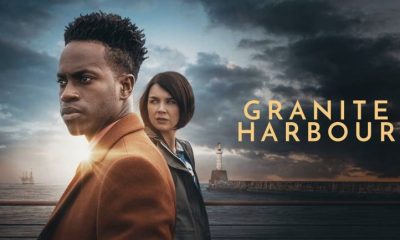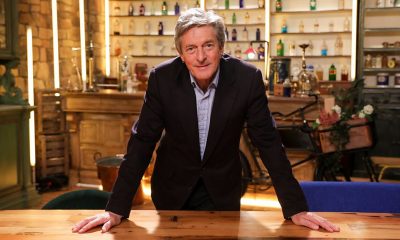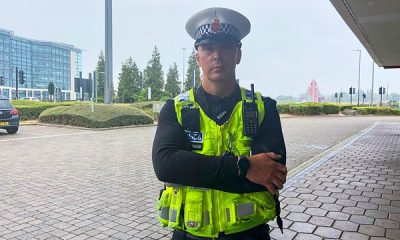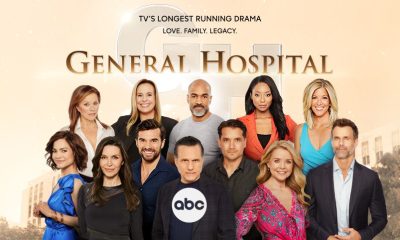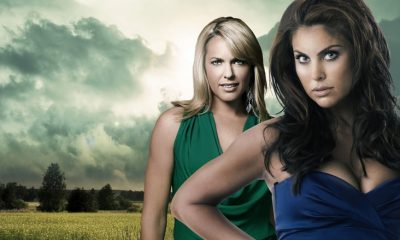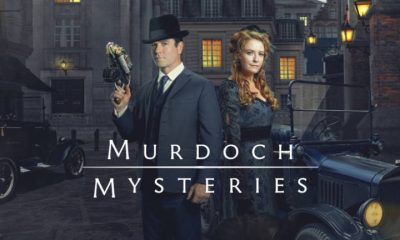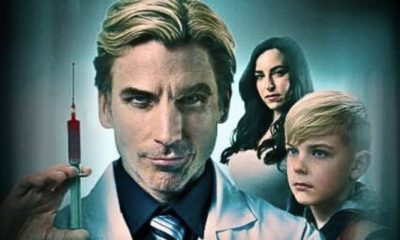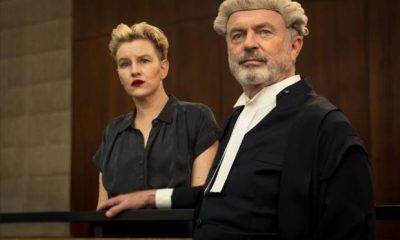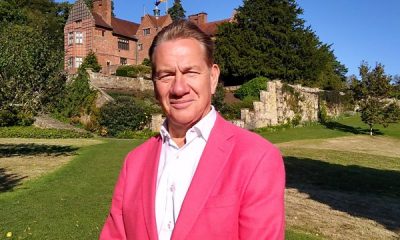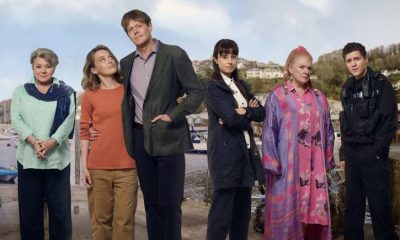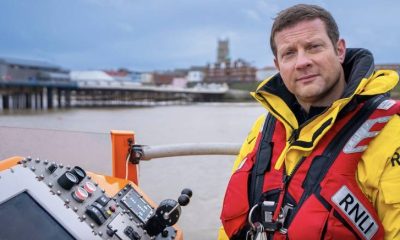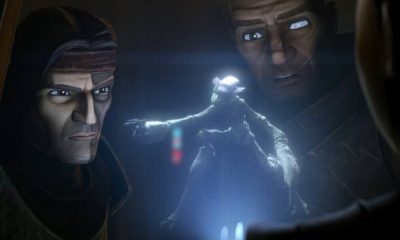Interviews
Sherwood | Interview with Joanne Froggatt (Sarah Vincent)
Can you please tell us about your character Sarah in a couple of sentences? Who she is and what motivates her?
Sarah is campaigning to be the local councillor so she’s very politically aware. Her political views differ from the bulk of her community because she is campaigning as a Conservative in a predominantly working-class area, a hard Labour constituency. Ashfield has a history with mining and was hugely impacted in the 80s by Thatcher and the miners’ strikes. She is very opinionated and believes in going against the grain which does rub many people up the wrong way in the process. You do get to see her softer side though as we meet her husband, played by Bally Gill, and they are very much in love. He is the person that softens her hard shell.
Community is a big theme in the drama. How does Sarah fit in with the community we explore?
Sarah actually goes to the beat of her own drum so I wouldn’t say she fits into the community that well because she has very different political views. Her dad owned a coach company during the strikes and took miners in and out of the town whether they were a part of the strikes or not. So, whilst that made him a successful businessman, he also divided opinion and drew strong reactions from his community because he was busing in miners that chose to work when there was a strike on. Of course, he was just trying to make a living and provide for his family but there has to be a backlash to that. I think that’s what fed into Sarah’s political views and her outlook on life; she wasn’t one to follow the crowd and she’s not afraid to use her voice, even if her opinions are different to those around her.
What attracted you to the role?
For all of the reasons, I’ve already described really. She’s not the most likeable character, which I love. That’s a fun challenge as an actor. As humans, we’re all multifaceted and multi-layered so it’s interesting to be able to explore those layers in somebody that, when you read them on the page, you think, Ah, okay, this one’s a piece of work!
I really enjoy being the antagonist of a scene as well, where you’re the one that’s bringing the argument or going against the grain. That drama and friction is what makes for a good scene and Sarah is so often at the centre of that.
Sherwood doesn’t fit neatly into any boxes. It’s a thriller, it could be described as a state-of-the-nation piece, but it’s not a police procedural; do you think viewers will be surprised by all?
I think that viewers will be very surprised by all of the twists and turns. James Graham and Lewis Arnold, our directors, have done the most incredible job, they’re both just so talented. And James’ script is really original. Even though it’s a subject matter that has been spoken about so much over the years, to me, it felt like a fresh take; based on true events but fictionalised from there.
James brought so much humour to the script in a way that is very real too. I lived in the Midlands for 10 years of my life and James is from the area, so he knows the sense of humour from that part of the country, and he hit that nail on the head. To me, that adds to the authenticity of the characters as well. He writes these well-rounded characters, and they get into some pretty extreme situations, to say the least. But because the characters are so grounded, you’re just taken on the ride. I’m really excited about it, it’s an incredibly refreshing, different take on the drama.
How familiar were you with the history and the legacy of the miners’ strike? Did working on the series teach you anything you didn’t know?
I was pretty familiar with it. I was very young when the miners’ strike happened and whilst I didn’t live in a mining town, I did live in the north of England. I remember it being talked about a lot, and it being on the news. I didn’t fully understand it, because I think I was three or four, but it was a part of my childhood. When I was older, we learnt about in school, and I learnt about it from family as well who taught me how divisive that time was in the UK. It was interesting to look back and revisit that as an adult, to see it with new eyes and gather a better understanding of the politics behind it.
I watched some great documentaries and learnt more through my research. Most of the women in the documentaries were at home looking after the kids and bringing up a family; they just didn’t have the opportunity to have a career or a job of their own.
There’s an incredible ensemble cast in Sherwood. What was it like working with the rest of the cast and do you have any memorable highlights during filming?
I was so excited to join this cast, it’s the dream cast. I read the script and immediately jumped at it, no questions asked. I just loved working with Bally, who plays my husband, and Adeel, who plays his dad, what a pair of incredible actors and gentlemen! When I met them together, I thought they already knew each other since they had such chemistry, but they had only just met. And both are incredibly passionate about what they do. We had such a great time filming our scenes. And they both built these brilliant characters. When Adeel came on set for the first time in his costume as Andy he totally transformed. And the relationship with Bally was such a great experience. And all under Lewis’ direction. The schedule was tight, and we had to lot of dramatic scenes to film, but we still really did manage to have a great time and giggle quite a lot. Adeel is just so funny!
So, this is a series which looks at the legacy of events in Britain’s past, but it’s also a very contemporary story with a lot of resonance with events in today’s world. What parts of the series do you think will resonate most strongly with audiences?
That’s a difficult question to answer. Every audience member reacts to things in a different way according to their own experiences, so different things will resonate with different people. What resonates for me, is that it highlights how easily and quickly we can become divided as a community. I think that’s a tale of caution, because we all know that things have divided us over the last few years. It’s a reminder that we’re all human beings and, as humans, empathy and understanding are such important traits that we need to exercise as much as we can.
Latest Interviews
News Highlights
-

 News3 days ago
News3 days agoMarried at First Sight: A Look Back on Denver, April 17, Lifetime
-
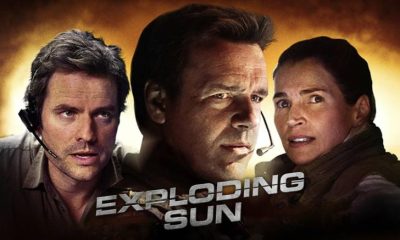
 News3 days ago
News3 days agoCrackle Serves Up Some Earth Day-Saster Classics
-
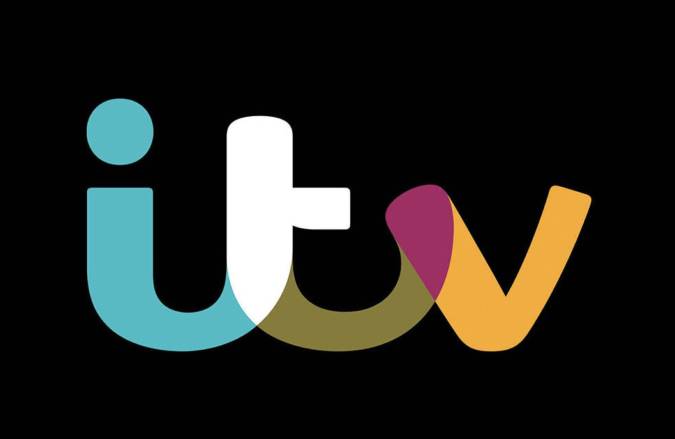
 News1 day ago
News1 day agoClaim Your Cash? Britain’s Hidden Fortune – Tonight, 18 April 2024, ITV1
-
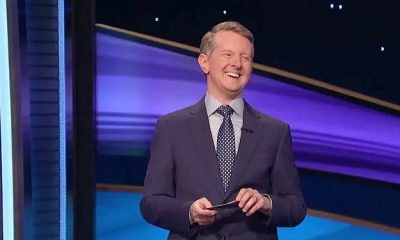
 News1 day ago
News1 day agoJeopardy! Recap, Winner and Today’s Final Answer Wednesday, April 17, 2024


